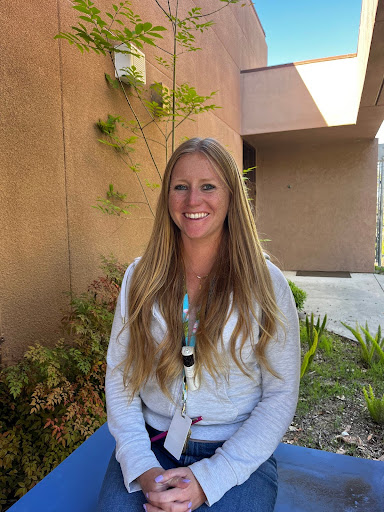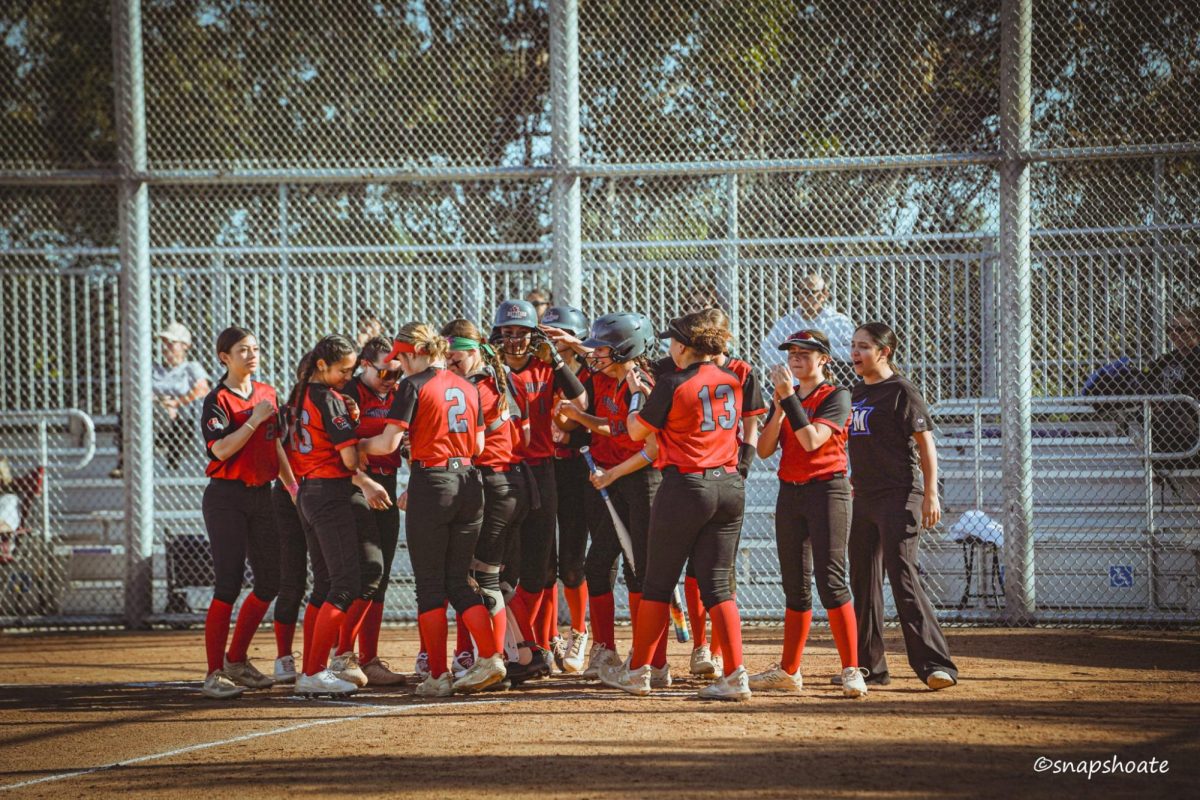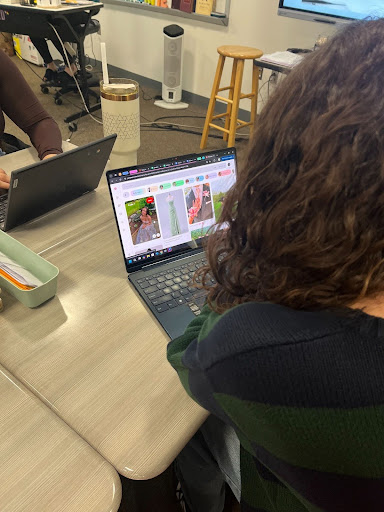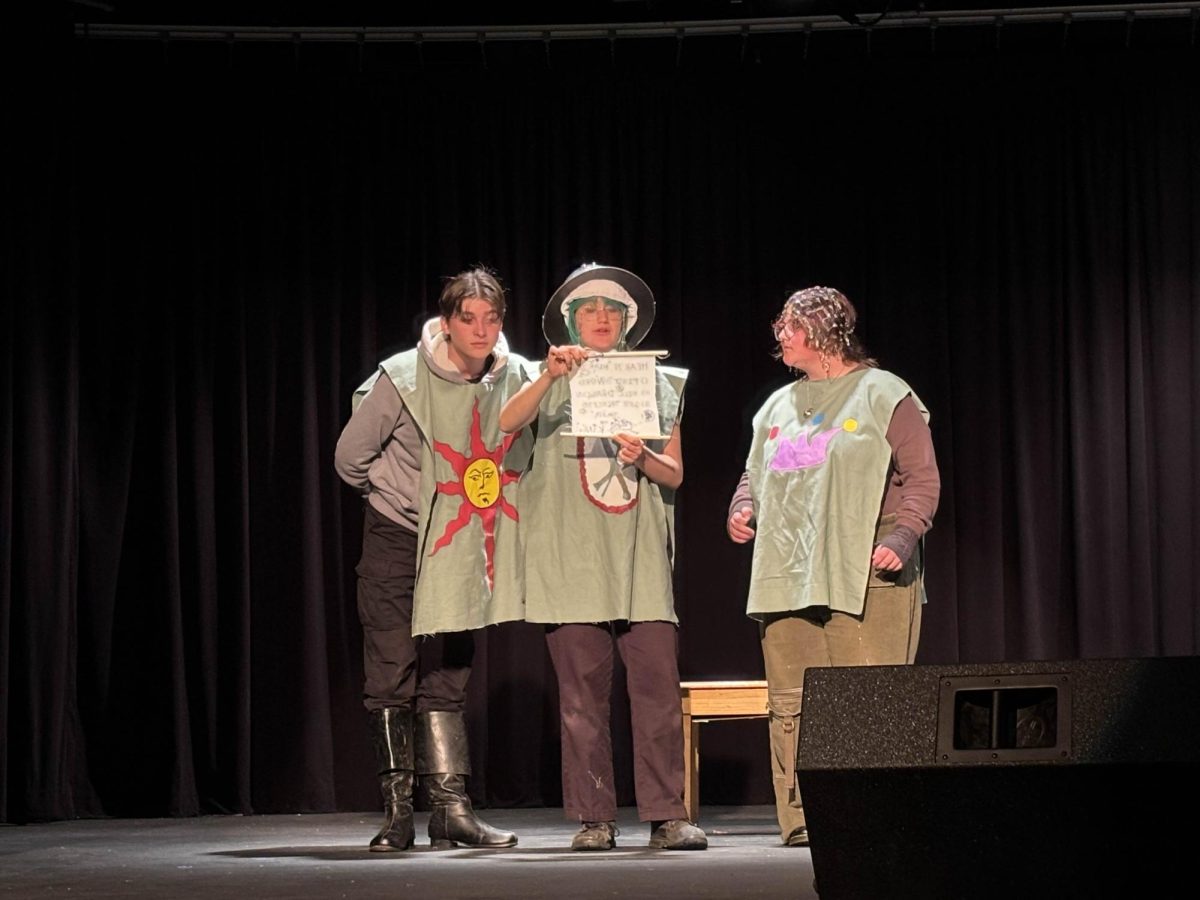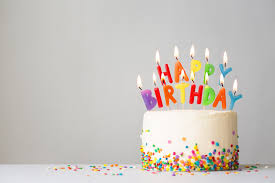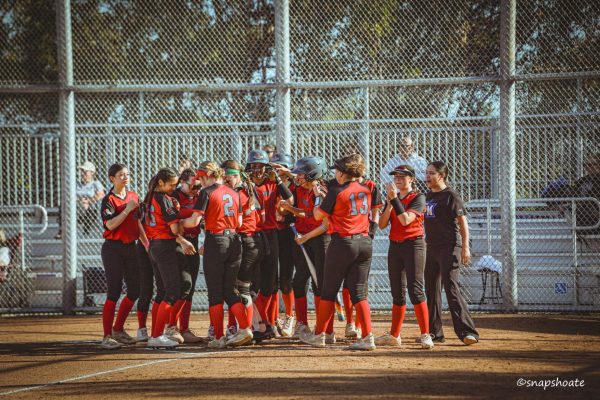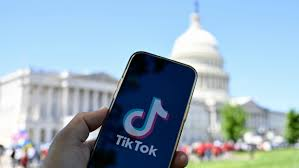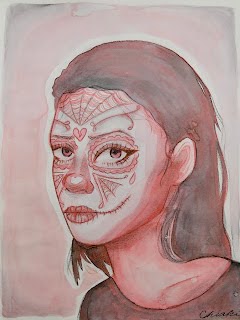Preparing for AP Exams: How are teachers helping, and how should you study?
The Advanced Placement (AP) exams are just around the corner, and AP students at Canyon Hills have begun preparing for them. But how should you prepare?
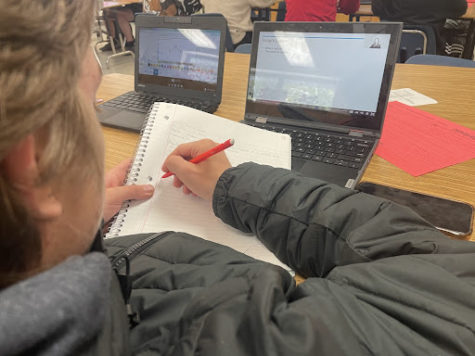
Source: Jasmine Tran
For anyone that doesn’t know what they are, AP exams are hosted by CollegeBoard and are taken by students in AP courses as an opportunity to earn college credit. Students register and pay around $100 at the beginning of the year and learn the material as the year progresses.
“We start on literally day one [of school] within AP,” said AP English Language and Composition teacher Katherine Amos. “I have a pretty good understanding of the skills students will need on the AP test, so I just introduce those skills one by one, we kinda treat them like bricks in a wall and each one builds on the one that came before, and then all of the work that we do in class is developing those skills.”
The exams for each course cover a large amount of material, whether it’s content based or skill based. It differs from exam to exam, but most of them are generally a multiple choice exam and then a free-response (essay) question(s).
“[World History] covers around eight hundred years of history, and on a global scope as well, so there’s a lot of things that need to be covered,” said Kenneth Toma,teacher for AP World History: Modern and AP Computer Science Principles. “Computer Science is pretty consistent, we start by talking about basic bits of information, and then talk about variables, loops…It’s a lot lighter than World History.”
AP teachers have begun rapidly reviewing their class’s material as the exams creep closer in the form of “prep weeks.”
“World History has two weeks to prepare, we do a lot of review and make connections between different historical events we’ve looked at; also games with key vocabulary words that we’ve encountered the past nine months. It’s all very fast paced because we have to think about things very quickly,” said Toma. “And then kind of the same thing with Computer Science. We’re gonna do a lot of practice multiple choice questions, lot of keywords stuff, basically gamifying everything.”
Students preparing for exams are advised by teachers:
“My biggest piece of advice [for studying] is to do a little bit over a long period of time. Doing ten minutes a day over three weeks is going to be much more effective than trying to do a few hours the night before,” said Amos. “My other piece of advice for students is to do something active. Reading notes, watching videos, that’s a good place to start, but in order to develop a skill, any kind of skill, the way to learn something is to do it. So finding ways to actually practice, whether that’s writing or speaking or creating, doing something that is actually active and productive rather than merely passive and receptive.”
“Ask questions, be present and engaged and collaborate with people in your environment,” said Toma. “The exam is not the most important thing, like yes we’re testing for that, but being able to [do skills] think critically, and create arguments, and support it with evidence, all of that stuff in my mind is way more important than the exam. It’s something that [the students] need anyway for the exam, and so if they focus on those skills, and also learn from different social and cultural viewpoints from the classroom environment, then they will be better prepared for not only the exam but for everything else in [life].”
Exam week is from May 1-May 12th, 2023, so if you are preparing for an exam, make sure to check the correct date and time for it.
Your donation will support the student journalists of Canyon Hills High School. Your contribution will allow us to purchase equipment and cover our annual website hosting costs.


